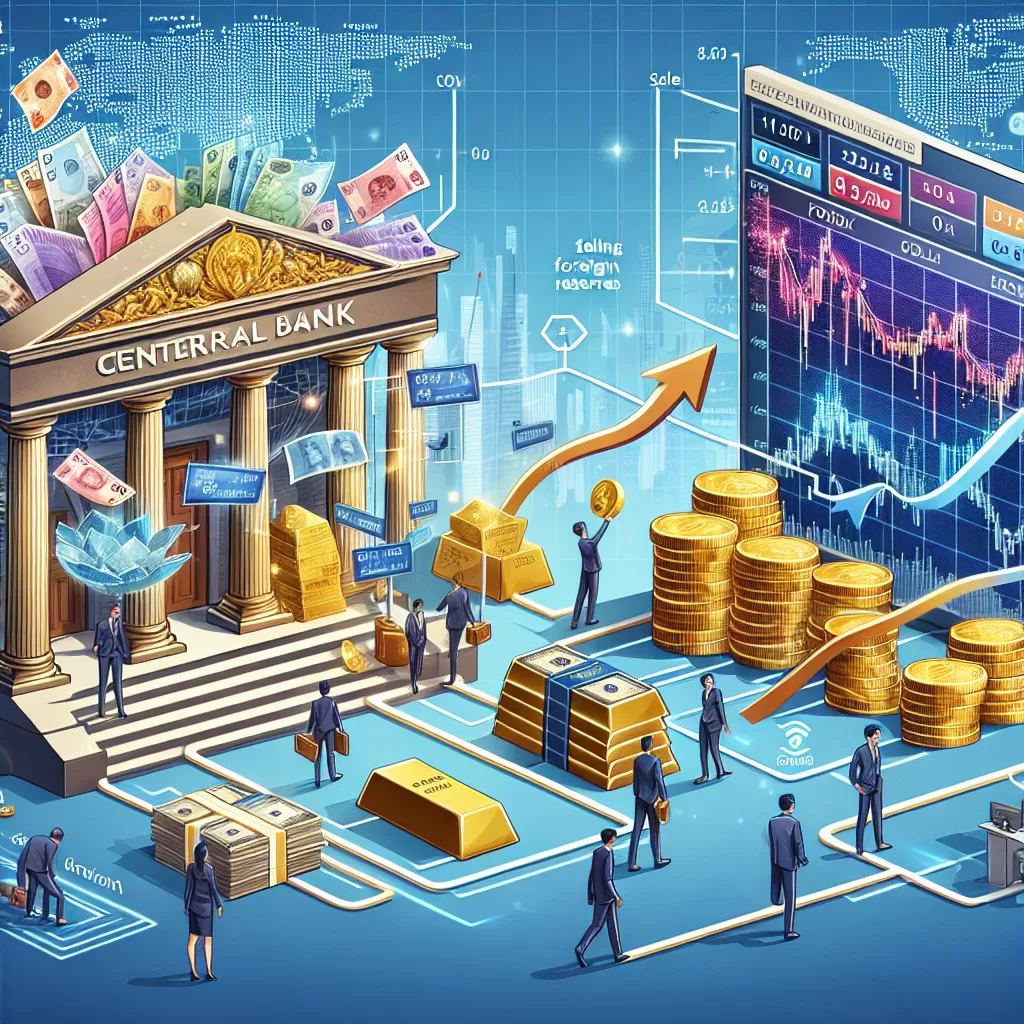How Does Selling Foreign Reserves Affect Exchange Rate
Follow Currency Mart April 10, 2024
Where to purchase Foreign Currencies?

Introduction
In the world of foreign exchange, one of the most intriguing and intricate aspects is the selling of foreign reserves. Their sale directly impacts exchange rates, causing them to change in value. To comprehend this phenomenon, we must delve deeper into the dynamics of the foreign exchange reserve and the exchange rate.Foreign Reserves: What are they?
Foreign reserves are assets held by a country's central bank in foreign currencies. They typically include bonds, treasury bills, and foreign banknotes. These reserves can be used for various purposes like defending the local currency, financing trade deficits, and ensuring the country's economic stability during turmoil. In many instances, countries stockpile foreign reserves as a form of economic protection.The Connection Between Foreign Reserves and Exchange Rate
Foreign reserves and exchange rates are interconnected. The reserves held by a country’s central bank are a source of strength for their national currency. The exchange rate is the value of one nation's currency in terms of another currency. For instance, if Canada has a considerable amount of U.S. dollars as reserves, it can impact the value of the Canadian dollar against the American dollar.How Selling Foreign Reserves Affects Exchange Rate
The selling of foreign reserves by a country's central bank can have a substantial impact on the exchange rate. This event typically takes place when a country needs to defend its own currency. The central bank sells its foreign reserves to obtain more of its own currency, increasing demand, and, thus, the currency's value. If Canada, for instance, needs to bolster the Canadian dollar against the U.S. dollar, its central bank might sell some of its U.S. dollars from its reserves. The supply of U.S. dollars in the forex market increases due to this sale, and the supply of Canadian dollars decreases, causing the Canadian dollar's value to rise.Implications of Selling Foreign Reserves
While selling foreign reserves to defend currency can be beneficial, it isn't without its downsides. One of the primary concerns being the depletion of the foreign reserves, limiting the central bank's capacity to tackle future economic shocks. Creating a pool of foreign reserves requires time and favourable economic conditions. Therefore, excessively selling them should ideally be a measure of last resort. Once depleted, building them back can be a tedious process that may take prolonged periods.Other Factors Influencing Exchange Rates
While selling foreign reserves is a crucial element influencing exchange rates, it's not the only factor. Interest rates set by central banks, imports and exports, inflation levels, economic performances, geopolitical stability, and investor sentiment also play significant roles in determining exchange rates.Conclusion
Understanding foreign reserves and the implications of their sale can help us grasp the foreign exchange market dynamics. Though selling foreign reserves is an effective way to defend a country’s currency and influence exchange rates, it must be executed with prudence to prevent any long-term economic consequences. By realizing the interplay of these economic variables, we can better navigate the ever-evolving realm of foreign exchange. In the end, the world of foreign reserves and the foreign exchange market is a dance of numbers and values, a tactic to be understood and wisely wielded for optimal benefit. As the Guardian of Foreign Exchange, I oversee this complex dance, seeking to shed light on its intricate schemes and transformations.
Where to purchase Foreign Currencies?